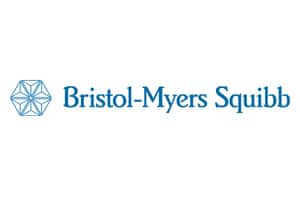
Bristol-Myers Squibb has decided to abandon its marketing application in the EU for its Opdivo/Yervoy checkpoint inhibitor combination in first-line non-small cell lung cancer (NSCLC).
The company also says it has no plans to refile PD-1 inhibitor Opdivo (nivolumab) and a low-dose regimen of CTLA4 inhibitor Yervoy (ipilimumab) in Europe based on the CheckMate-227 study that formed the basis of the application, as EU regulators have serious misgivings about the study.
In the US, the FDA has agreed to review a marketing application based on the trial and is due to deliver a verdict on it by 15 May, but the EU delay means BMS is now further away from challenging Merck & Co/MSD’s PD-1 inhibitor Keytruda (pembrolizumab) as the dominant force in first-line NSCLC immunotherapy.
According to BMS, the EMA’s Committee for Medicinal Products for Human Use (CHMP) has problems with the “multiple protocol changes the company made in response to rapidly evolving science and data”.
CheckMate-227 was initially submitted in 2018 in treatment-naïve NSCLC patients with tumour mutational burden (TMB) – a biomarker for disease activity – based on an improvement in progression-free survival (PFS), but failed to show an improvement on the more stringent overall survival (OS) endpoint.
The trial was later tweaked to include data from an earlier stage of the study pitting Opdivo/Yervoy against chemotherapy in patients with at least 1% PD-L1 expression, with the combined data set showing an improvement in OS.
The CHMP “acknowledged the integrity of the patient level data” but said the changes made it impossible to evaluate the filing properly.
“The durable survival benefit seen in CheckMate-227 is an important result for patients and we are disappointed with the CHMP’s position,” said BMS’ chief medical officer Samit Hirawat.
BMS is not giving up on first-line NSCLC in Europe entirely however, saying it is planning to file for approval there on the basis of data from the CheckMate-9LA trial, which evaluated Opdivo/Yervoy given alongside two cycles of chemotherapy in previously-untreated ‘all comer’ NSCLC patients, i.e. irrespective of their expression of the PD-L1 biomarker.
There has been further bad news for BMS after its recently-acquired Celgene unit withdrew a marketing application for Idhifa (enasidenib) as a treatment for adults with relapsed or refractory acute myeloid leukaemia (AML) with an IDH2 mutation, after “major objections” were raised by the EMA over the dossier.




